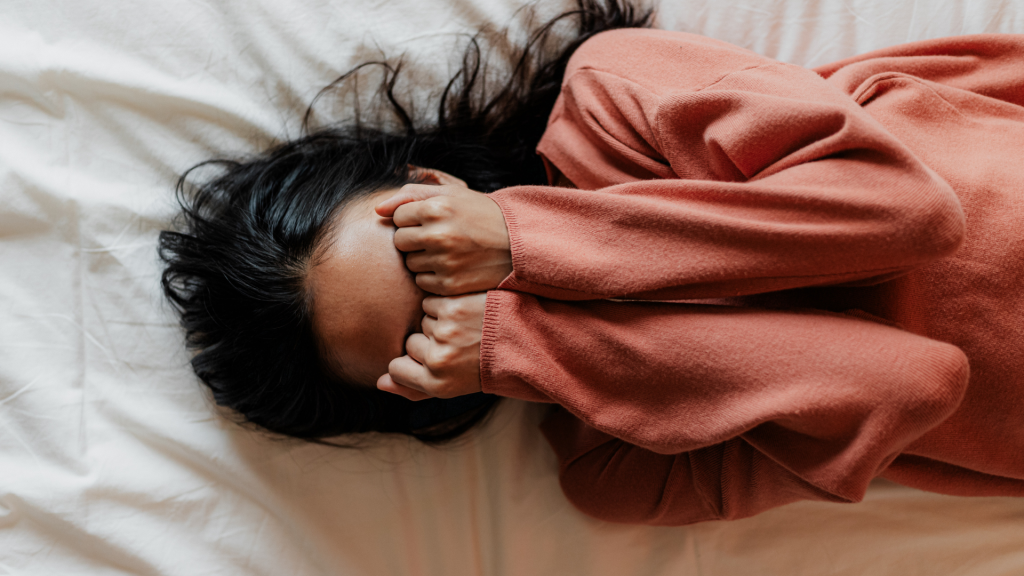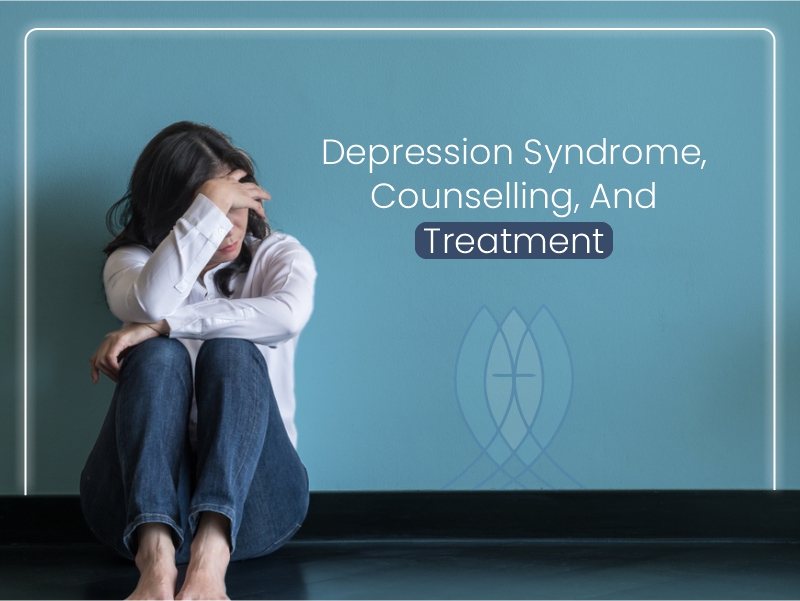Start your journey with counselling for anxiety disorder led by professionals
Start your journey with counselling for anxiety disorder led by professionals
Blog Article
Discovering Different Approaches in Therapy for Anxiety Condition for Enduring Modification
When tackling anxiousness disorders, it's necessary to explore a range of therapy strategies. Each method supplies one-of-a-kind insights and tools to help you handle your symptoms properly. You might discover that incorporating methods can generate the very best results. Nonetheless, recognizing the subtleties of these methods is vital to cultivating long-term modification. What if the best mix could release a new degree of emotional health for you?
Understanding Anxiousness Disorders: A Brief Overview
Anxiousness problems, which influence numerous individuals worldwide, can significantly impact every day life. You might experience overwhelming feelings of worry or fret that seem unmanageable. These feelings can bring about physical signs and symptoms like an auto racing heart, sweating, or also lightheadedness. Common sorts of stress and anxiety problems include generalized anxiousness condition, panic problem, and social anxiety problem. Each has distinct indications, yet they all share a tendency to interrupt your routine and relationships.Understanding the source of your anxiousness is crucial. It may come from genes, mind chemistry, or life experiences. Acknowledging your triggers can assist you handle your responses better. It is very important to keep in mind that you're not alone in this battle. Lots of people deal with comparable difficulties, and seeking aid is a solid step towards feeling better. By discovering stress and anxiety disorders, you're already on the path to understanding and handling your problem more successfully.
Cognitive-Behavioral Therapy: Testing Negative Idea Patterns

Recognizing Negative Idea Triggers
When you run into moments of distress, identifying the details triggers behind your adverse thoughts can be essential in managing stress and anxiety. Start by taking note of circumstances that prompt feelings of worry or fear. Is it a crowded room, a future due date, or a discussion with particular individuals? Write these circumstances in a journal. This will help you recognize patterns in your reasoning. Additionally, notice physical experiences that accompany your adverse thoughts, like a racing heart or tightness in your breast. By identifying these triggers, you acquire understanding into what's sustaining your anxiousness. Understanding these connections is the very first step in testing those thoughts and eventually reclaiming control over your psychological reactions.

Changing Ideas With Positives
Challenging unfavorable thought patterns is a necessary action in changing your state of mind and minimizing anxiety. You may frequently discover yourself entraped in cycles of self-doubt or tragic reasoning. As opposed to letting these ideas dictate your sensations, method replacing them with favorable affirmations or practical alternatives. When you believe, "I can't manage this," move it to, "I can handle challenges one step at a time." This straightforward adjustment can greatly affect your mood. On a regular basis determining and responding to these unfavorable thoughts helps develop a healthier internal dialogue. Remember, it takes some time and initiative, yet regularly practicing this strategy can result in long lasting adjustment, encouraging you to face anxiety with renewed self-confidence and durability
Building Coping Approaches Together
Replacing unfavorable thoughts is only the start of taking care of stress and anxiety effectively. To produce enduring modification, you require to build coping methods that encourage you. Cognitive-Behavioral Treatment (CBT) helps you identify and challenge those unhelpful idea patterns. With each other, you and your therapist can check out exactly how these ideas impact your sensations and behaviors.Start by establishing sensible strategies, like journaling or mindfulness exercises, that allow you to face anxiety head-on. When you encounter your anxieties gradually, you'll learn to respond in different ways.

Mindfulness and Acceptance-Based Approaches: Growing Present-Moment Awareness
As you navigate the complexities of stress and anxiety, including mindfulness and acceptance-based approaches can significantly boost your ability to grow present-moment recognition. By focusing on the present moment, you'll find that you can observe your thoughts and feelings without judgment. This practice aids you acknowledge your anxiety without really feeling bewildered by it.Engaging in mindfulness workouts, such as deep breathing, body scans, or directed reflections, enables you to ground yourself in your present experience. Acceptance-based techniques motivate you to accept your emotions instead of deal with against them. They lose their power over you.Incorporating these methods into your daily regimen can change exactly how you react to anxiety when you accept your sensations. You'll establish strength and learn to navigate demanding situations with greater simplicity. Inevitably, growing present-moment awareness lays the structure for long lasting change, equipping you to lead a much more meeting life.
Exposure Therapy: Challenging Anxieties Progressively
Direct exposure therapy aids you confront your anxieties in a steady way, making it less frustrating. You'll learn strategies to deal with anxiety-provoking situations detailed, while also building coping methods to handle your reactions. This approach encourages you to take control and reduce stress and anxiety gradually.
Progressive Direct Exposure Techniques
When dealing with anxiety, progressively facing your worries can be an effective means to restore control. This strategy, called steady direct exposure, includes slowly exposing on your own to the scenarios or objects that activate your anxiety. Beginning with much less challenging scenarios and gradually work your way as much as more difficult ones. For example, if you hesitate of public speaking, you could begin by talking in front of a mirror, then progress to sharing ideas with a good friend, and eventually deal with a tiny group. Each action assists desensitize you to the fear, developing your confidence over time. Remember, it's necessary to pace on your own and commemorate small success as you relocate with this process, enhancing your ability to handle anxiousness efficiently.
Structure Coping Approaches
Structure efficient coping strategies is important for managing stress and anxiety, specifically as you confront your worries progressively. One effective method is exposure treatment, where you begin by encountering your concerns in a controlled fashion. Start with much less intimidating situations and gradually work your method as much as even more challenging situations. This steady exposure assists desensitize you to anxiousness activates, making them much less overwhelming.Incorporate leisure techniques, such as deep breathing or mindfulness, to relax your mind during exposure. Track your progress, celebrating small victories along the means to increase your confidence. Remember, it's all right to take your time; the objective isn't excellence but steady improvement. By building these techniques, you'll encourage yourself to navigate stress and anxiety and embrace life more completely.
Psychodynamic Treatment: Discovering Origin of Stress And Anxiety
Psychodynamic treatment checks out the subconscious mind, disclosing the root triggers of your anxiousness - Counseling services for anxiety. By analyzing your thoughts, feelings, and past experiences, this method helps you reveal underlying conflicts and unsettled problems that may add to your present anxiety. You'll collaborate with a specialist to investigate childhood years experiences, relationships, and psychological patterns that form your actions today.As you gain insight right into these deeper layers of your mind, you'll start to recognize how previous occasions affect your existing actions. This understanding can cause catharsis, allowing you to refine feelings you could have suppressed.Through the restorative relationship, you can also identify defense reaction that might have created over time, supplying a clearer course to change. Ultimately, psychodynamic therapy outfits you with the tools to address your stress and anxiety at its core, promoting long lasting change in your emotional wellness
Integrative and Holistic Approaches: Incorporating Techniques for Greater Efficiency
Incorporating various restorative methods can enhance your trip toward handling anxiety better. By integrating elements from cognitive-behavioral therapy, mindfulness methods, and holistic techniques, you can develop a tailored strategy that addresses your distinct requirements. You might use cognitive-behavioral methods to test negative thought patterns while incorporating mindfulness workouts to ground on your own in the existing moment.Additionally, discovering all natural practices such as yoga or reflection can promote relaxation and decrease anxiousness symptoms. This mix allows you to develop better self-awareness and resilience.Experimenting with these diverse approaches can help you discover what resonates most with you. Keep in mind, it has to do with finding a synergy that functions, instead than sticking to a single approach. This integrative approach not just supplies instant alleviation yet likewise cultivates long-lasting skills for managing anxiousness, empowering you to redeem control over your life.
The Function of Support Solutions: Building Resilience Through Connection
While it may appear that taking care of anxiety is a solitary journey, having a solid assistance system can play a vital function in your strength. Surrounding on your own with understanding good friends, household, or support system creates a safe space where you can freely share your feelings and experiences. You advise on your own that you're not alone in this struggle.These relationships offer motivation and can supply practical coping methods that have worked for others when you connect with others. It's also a possibility to gain point of view; buddies can aid you see situations in a different way, decreasing feelings of isolation.Moreover, emotional assistance promotes a feeling of belonging, which can significantly reduce stress and anxiety signs and symptoms. By leaning on your support group, you can construct resilience and tackle difficulties much more properly. Bear in mind, getting to out for assistance suggests toughness, and it can make all the distinction in your trip towards handling anxiety.
Frequently Asked Inquiries
What Are the Common Signs And Symptoms of Anxiousness Problems?
You might experience restlessness, exhaustion, problem focusing, impatience, muscular tissue tension, and sleep disruptions. Physical symptoms can consist of rapid heartbeat, sweating, and trembling. Identifying these signs early can assist you look for appropriate support and treatment.

How Much Time Does Therapy Typically Last for Stress And Anxiety Disorders?
Treatment for stress and anxiety conditions generally lasts anywhere from a couple of weeks to a number of months. It really depends on your specific needs, progress, and the techniques your specialist utilizes to aid you manage your anxiousness effectively.
Can Medicine Be Utilized Together With Therapy for Stress and anxiety?
Yes, medication can absolutely be made use of alongside treatment for anxiousness. Combining both techniques frequently enhances treatment effectiveness, helping you handle symptoms while exploring underlying problems with counseling. Constantly consult your doctor for tailored recommendations.
Are There Self-Help Methods for Managing Anxiety?
Yes, there are numerous self-help techniques for taking care of anxiety. You can practice mindfulness, involve in regular workout, maintain a well balanced diet, establish a routine, and utilize deep breathing techniques to assist minimize anxiousness signs and symptoms effectively.
How Do I Know if I Required Expert Assistance for Anxiousness?
You should think about seeking expert aid for anxiousness if it disrupts day-to-day life, creates considerable distress, or if self-help strategies aren't working. Depend on your impulses; connecting can cause better coping skills and support. Common kinds of stress and anxiety disorders consist of generalized stress and anxiety here condition, panic problem, and social anxiety condition. When you experience minutes of distress, identifying the certain triggers behind your negative thoughts can be essential in handling anxiousness. Replacing unfavorable ideas is just the start of handling anxiousness successfully. By examining your thoughts, feelings, and previous experiences, this technique helps you reveal underlying conflicts and unresolved problems that may contribute to your existing stress and anxiety. It's additionally an opportunity to get point of view; close friends can help you see circumstances in different ways, lowering feelings of isolation (Counseling services for anxiety).Moreover, emotional assistance promotes a sense of belonging, which can substantially minimize stress and anxiety signs
Report this page